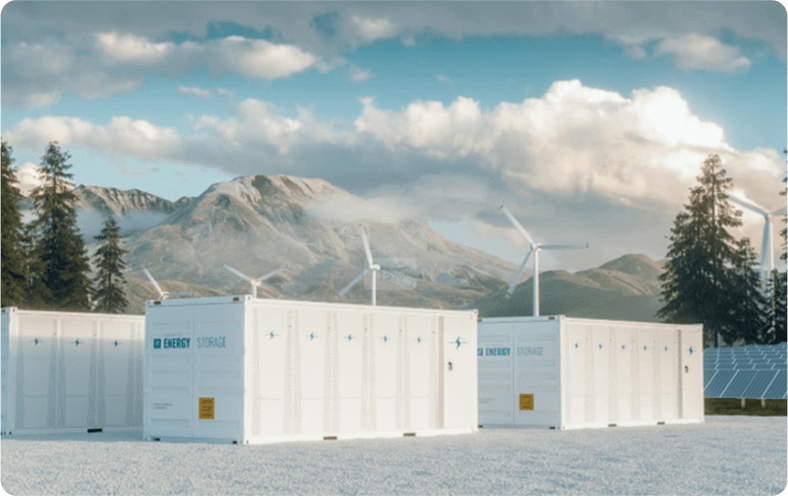Mar. 18, 2025
As the demand for renewable energy integration and grid stability grows, battery energy storage systems (BESS) have become a critical component in modern power systems. Whether for residential, commercial, or utility-scale applications, designing an efficient and reliable BESS requires careful consideration of multiple technical factors. In this article, we explore the key aspects that engineers must address to optimize performance, safety, and longevity.
1. Battery Chemistry Selection
The choice of battery technology significantly impacts system efficiency, lifespan, and cost. The most common options include:
- Lithium-ion (Li-ion): High energy density, long cycle life, and fast response, making them ideal for most applications. Variants like LFP (LiFePO₄) offer enhanced safety and thermal stability.
- Flow Batteries: Suitable for long-duration storage due to their scalability and deep-cycle capability.
- Lead-Acid: Low-cost but with shorter lifespan and lower efficiency, often used in backup systems.
Engineers must evaluate energy density, cycle life, temperature sensitivity, and degradation rates to match the technology with project requirements.
2. System Sizing and Scalability
Proper sizing of a BESS involves:
- Energy Capacity (kWh): Determines how long the system can supply power.
- Power Rating (kW): Defines the rate at which energy can be delivered.
- C-rate: The charge/discharge speed relative to battery capacity. High C-rates may reduce lifespan.
Modular designs allow for future expansion, ensuring adaptability to growing energy demands.
3. Thermal Management
Batteries generate heat during operation, and excessive temperatures can accelerate degradation or pose safety risks. Effective thermal management strategies include:
- Active Cooling (liquid/air): Essential for high-power applications.
- Passive Cooling: Suitable for smaller systems with moderate loads.
- Temperature Monitoring: BMS (Battery Management System) should regulate operating conditions to prevent thermal runaway.
4. Battery Management System (BMS)
A robust BMS is crucial for:
- State of Charge (SOC) & State of Health (SOH) Monitoring
- Cell Balancing to prevent overcharge/discharge
- Fault Detection & Protection against short circuits and overheating
Advanced BMS solutions incorporate AI for predictive maintenance and performance optimization.
5. Grid Integration & Power Electronics
The power conversion system (PCS) must efficiently manage:
- AC/DC Conversion (for grid-connected systems)
- Frequency & Voltage Regulation
- Black Start Capability (for off-grid or microgrid applications)
Inverters and transformers should be selected based on efficiency (>95%) and compatibility with grid standards.
6. Safety & Compliance
Safety considerations include:
- Fire Suppression Systems (especially for Li-ion batteries)
- Proper Ventilation & Enclosure Design
- Compliance with Standards (e.g., UL 9540, IEC 62619, NFPA 855)
Conclusion
Designing an optimal BESS requires a multidisciplinary approach, balancing technical performance, safety, and cost. As battery technologies evolve, engineers must stay updated on advancements in materials, control algorithms, and system integration to deliver reliable and future-proof energy storage solutions.
Would you like a deeper dive into any specific aspect, such as hybrid storage systems? Don't hesitate to get in touch with us.
Latest News
Related Products
Related Solutions
Residential Energy Storage System Solutions
+ -SolarEast's residential energy storage system, designed for homes, villas, sunrooms, and communities, stores solar energy to reduce power bills and ensure reliable day-and-night energy use.
Commercial & Industrial Storage System Solutions
+ -SolarEast BESS is a supplier of lithium iron phosphate batteries, microgrid energy, large-scale battery storage, grid-scale energy storage, high-voltage energy storage batteries, and energy storage solutions. SolarEast solar batteries and solutions are recognized and welcomed by customers worldwide. Our targets are focused on the following markets: industrial and commercial energy storage systems, Telecom Energy Storage Systems (TESS), transportation/utility energy storage, and large/medium/small backup power systems.
Utility Scale Energy Storage Solutions
+ -Optimize Energy Efficiency. Cut Costs. Embrace Sustainability. SolarEast Battery Energy Storage Systems provides customized BESS solutions for industrial parks, farm energy storage solutions, and C&I Energy Storage System to reduce peak demand charges, stabilize power supply, and enable smart energy management. Our industrial and commercial energy storage systems cover a full range of products from 30kWh to 5MWh, including small integrated energy storage devices and large customized energy storage solutions, which are widely used in microgrids, off-grid power supply, peak cutting and valley filling, demand side management and backup power.


